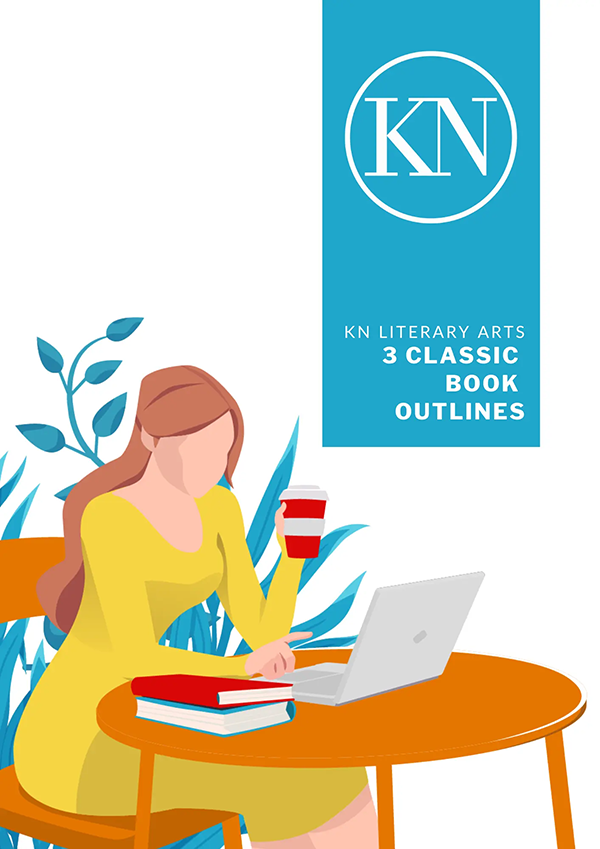Self-publishing and traditional publishing are both great options for getting your book out in the world, each with pros and cons. One option is not better than the other. It all depends on what you want and where you are at in your book journey.
Many authors actually switch back and forth between self-publishing and traditional publishing because of the advantages that each provides. So let’s break down the pros and cons of traditional publishing vs. self-publishing so that you can choose which is right for you.
Traditional Publishing
This is how most people think of publishing a book. Big traditional publishers you may have heard of include Harper Collins, Hay House and Simon and Schuster.
They will pay you an advance (big or small, depending on how many books they think will sell), and they will pay all of the costs to get your book printed. And there are a lot of costs! They will pay for professional cover design, six to eight rounds of editing (yup, that many!) and interior design.
Traditional publishers have a lot of experience and only bring in books that they believe will make them all of that money back that they spend up front, and more. They are a business that wants to make money, after all.
As you might expect, there is a pretty high bar to getting in with one of these publishers. They are looking for three important things when they consider a book.
Three Things Traditional Publishers Are Looking For:
- A unique and salable concept.
- Above average, professional quality writing.
- A large author platform (especially for nonfiction).
To publish through a traditional publisher, you won’t write your book first (if it’s nonfiction). You first need to find an agent and then get a book deal with a publisher. To do that, you need a book proposal.
Sidenote: Some publishers will take “unagented proposals,” meaning you can submit your book proposal directly to them without having to find an agent first. You can get a list of some of the publishers who accept proposals directly from authors by filling out the form below:
Traditional Publishing Pros and Cons
Pros:
- The publisher will pay the cost associated with getting your book out in the world.
- Some authors, readers or bookstores may perceive a certain level of prestige or credibility because of your publisher.
- You will benefit from the publisher’s in-house team of experts working on your book.
- Idea validation. A publisher wouldn’t make an offer on your book unless they thought it would be profitable.
Cons:
- You relinquish some control over the final product. Publishers get the final say on your cover design, title and edits.
- Traditional publishing takes for. ev. er. Okay, not forever, but one to two years.
- You don’t get to keep all of the profits from your sales.
What About Marketing?
You may have noticed that we did not mention anything about traditional publishing leading to more sales. While getting published through a traditional publisher used to help greatly with book sales, the advent of online book buying has changed things.
Here’s the tough-love truth of the matter: no matter how you choose to publish, you are the #1 marketer for your book.
Watch the following video to learn all about this situation.
Self-Publishing
In the last 20 years, self-publishing has become viable for anyone. When you self-publish, you’re putting together the content of the book, getting a cover designed and fronting the costs to have your book edited. This can cost a lot or a little, depending on how you choose to do it.
Even though you’re the one paying for everything upfront when you self-publish, one of the main advantages is that you remain in complete control. You have the final say on every aspect of your book and get to keep all of the profits.
In years past, self-publishing involved ordering hundreds or thousands of copies of your book to keep the price per copy down. Many a garage has been filled with pallets of yet-to-be-sold books.
Thanks to print-on-demand, you don’t have to store any copies of your book. Your book can be sold on Amazon or ordered by indie bookstores without you ever having to manage the process.
Here’s the amazing news: Self-publishing does not hinder you from getting signed with a traditional publisher later on.
In fact, if you sell about 5,000 copies of your book in the first 18 months after self-publishing, you will likely have publishers contacting you, interested in buying the rights to your book and publishing it themselves.
Self-Publishing Pros and Cons
Pros:
- You have complete control over the end product.
- You get to keep the money, honey!
- The process is a lot faster. You can self-publish in a matter of months instead of a year or more.
Cons:
- You have to pay for cover design, editing and interior design out of your own pocket.
- Lack of support. You won’t have a “built-in” support team with your agent, editor, and any other experts a traditional publisher gives you access to. However! You can build your own support system as you hire an editor or even work with a company that does assisted self-publishing (like us!).
We hope this discussion of the pros and cons of traditional vs. self-publishing helps you decide which path is worth it for you to pursue. Neither one is good or bad. They’re just different.
Whichever publishing option you choose, we’d love to help! Book a call with us today to learn about book proposal editing, agent consulting services, assisted self-publishing and more.
Share:


